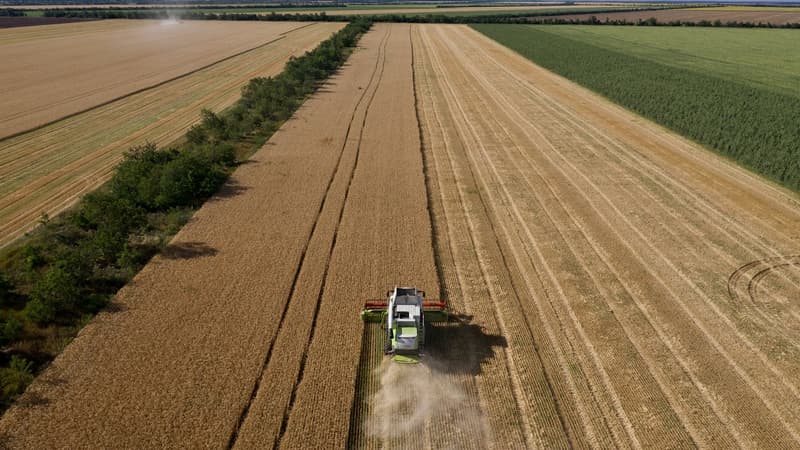The Lithuanian government called on the European Union on Monday to take more account of the Baltic states’ abilities to support Ukraine’s grain exports, following Russia’s recent withdrawal from an agreement allowing grain transport across the Black Sea.
In a letter to the European commissioners, seen by AFP, three Lithuanian ministers considered that the infrastructures of these countries could “serve as a viable and reliable alternative route for the transit of Ukrainian products, including grains.” According to them, the Baltic infrastructure has a combined annual capacity of 25 million tons for grain alone.
Meanwhile, the international agreement on the transport of grain through the Black Sea has allowed the export of about 33 million tons of grain and other food for more than a year, according to the UN.
Reduce administrative procedures
To exploit the potential of the alternative route they propose, the Lithuanian ministers have urged the European Union (EU) to reduce red tape on the Polish-Ukrainian border and henceforth to implement it in Baltic ports.
Last week, five neighboring countries – Ukraine, Poland, Bulgaria, Hungary, Slovakia and Romania – urged the EU to allow them to extend the restrictions they placed on Ukrainian grain imports to protect their farmers beyond the September 15 expiration date.
Russia hardens tone
The Russian authorities, who have just withdrawn from the key agreement on Ukraine’s grain exports, have announced that they will consider all ships heading for Ukraine’s grain ports on the Black Sea as military objectives.
This warning was followed by an intensification of Russian attacks against the Odessa region of Ukraine. kyiv has accused Russia of targeting grain transportation and critical infrastructure for any resumption of its exports.
Ukraine’s staunch supporter Lithuania last week rejected the idea of easing sanctions against Moscow, imposed after its invasion of Ukraine.
Source: BFM TV


